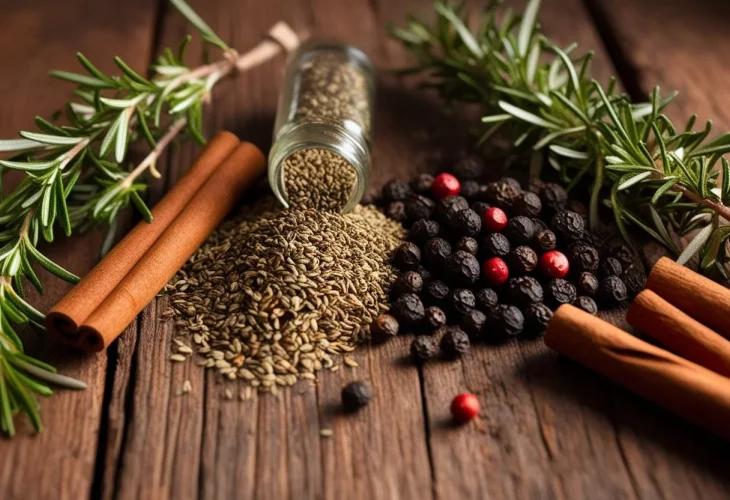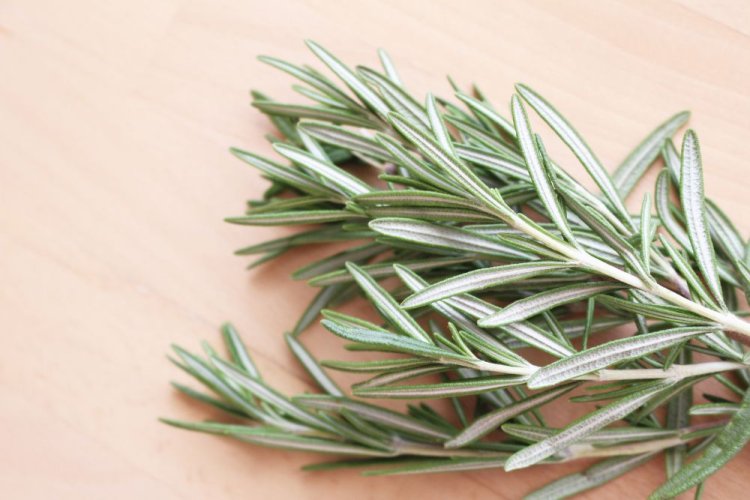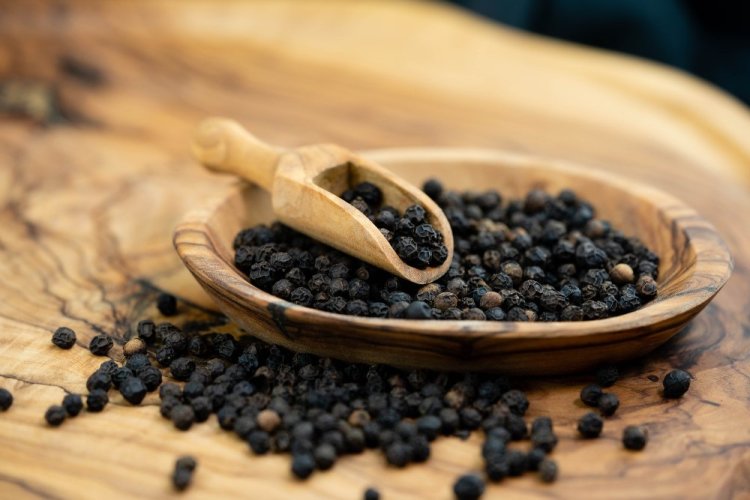Health and Nutrition
4 Healing Spices Hiding in Your Kitchen That Boost Health Naturally
Discover how thyme, rosemary, black pepper, and cinnamon can support digestion, immunity, and emotional balance.

At a time when it's easier than ever to take pills or swallow vitamins, it’s worth returning to our roots and remembering that our kitchens hold more healing power than the pharmacy. The great Rambam (Maimonides) often emphasized this idea. He viewed herbs and spices as tools to strengthen both body and soul, maintaining internal balance and supporting the body’s systems, when used in the right amounts.
There’s a reason for the famous saying: “Let food be thy medicine and medicine be thy food.” Our foods, especially the colorful spices sitting on your kitchen counter or tucked away in the cabinet, hold remarkable power. In some cases, they may be just as effective as medication, but without the side effects. Many spices can naturally support the body in fighting inflammation, easing pain, aiding digestion, and more.
Following are four common spices found in most homes that offer surprising health benefits:

1. Thyme
Thyme is a popular herb with a strong aroma and bold flavor. Beyond its culinary uses, it has been used in traditional medicine for centuries to strengthen the body and treat respiratory issues.
Key Benefits:
Acts as a disinfectant and expectorant; relieves cough, bronchitis, sore throat, and nasal congestion.
Stimulates digestion, reduces gas and bloating, and eases post-meal heaviness.
Rich in antioxidants that support the immune system.
Helps calm the nervous system and reduce stress.
How to use:
Brew a tea from fresh or dried thyme leaves, or add it to dishes and soups.
2. Rosemary
Rosemary doesn’t just smell amazing, but it’s packed with antioxidants that enhance blood flow to the brain and may help with mental fatigue.
Key Benefits:
Boosts blood circulation to the brain, supporting memory, focus, and mental clarity.
Its scent can both calm and energize, making it ideal for midday use.
Contains anti-inflammatory compounds that support immune function and protect cells.
Aids digestion, reduces gas, and eases stomach discomfort.
How to use:
Use fresh or dried rosemary leaves for tea or to season meals.

3. Black Pepper
Often called the “king of spices,” black pepper brings more than just heat. It contains piperine, a powerful compound with notable health benefits.
Key Benefits:
Stimulates digestive enzymes and supports food breakdown.
Enhances nutrient absorption, especially of curcumin (found in turmeric).
Has anti-inflammatory and immune-supporting properties.
May promote fat metabolism and aid weight management.
Supports detoxification and protects cells from damage.
Tip:
Sprinkle black pepper with turmeric and olive oil on salads, soups, or cooked dishes for a healthy boost.
4. Cinnamon
A powerhouse spice used in traditional medicine for thousands of years, cinnamon still holds its place today for its broad range of benefits.
Key Benefits:
Helps regulate blood sugar levels, especially in people with type 2 diabetes or prediabetes.
Has antibacterial, antiviral, and antifungal properties.
Contains polyphenols that combat free radicals and reduce inflammation.
Traditionally viewed as a warming spice, ideal for colder seasons or those who feel chilled.
How to use:
Add a pinch to coffee or tea, sprinkle over oatmeal, yogurt, or toast with almond butter, or incorporate into rice, chicken, or soup dishes for warmth and depth.
Note: This information is intended for general enrichment and does not replace medical advice or diagnosis. Pregnant or nursing women, young children, and individuals with chronic illnesses, allergies, digestive issues, blood pressure concerns, or those on regular medications should consult with a doctor or naturopath before using these spices regularly or in concentrated form.

